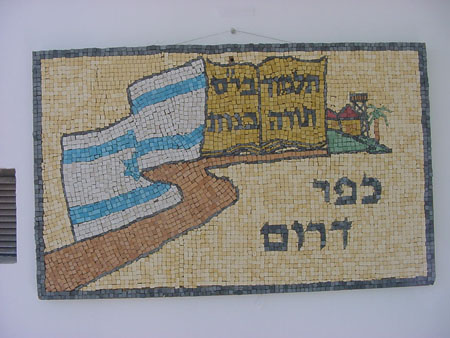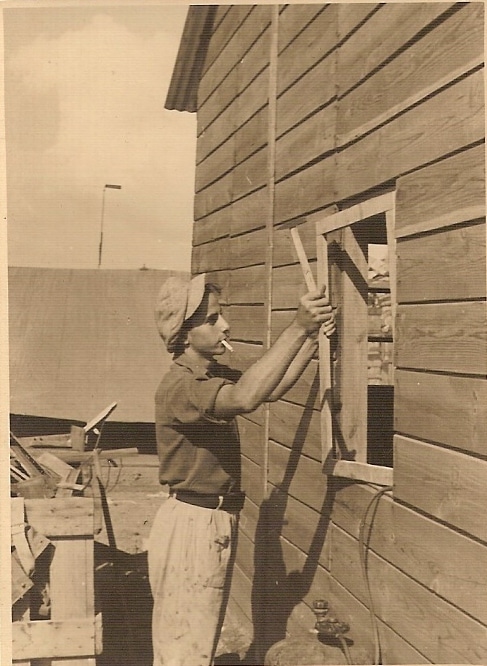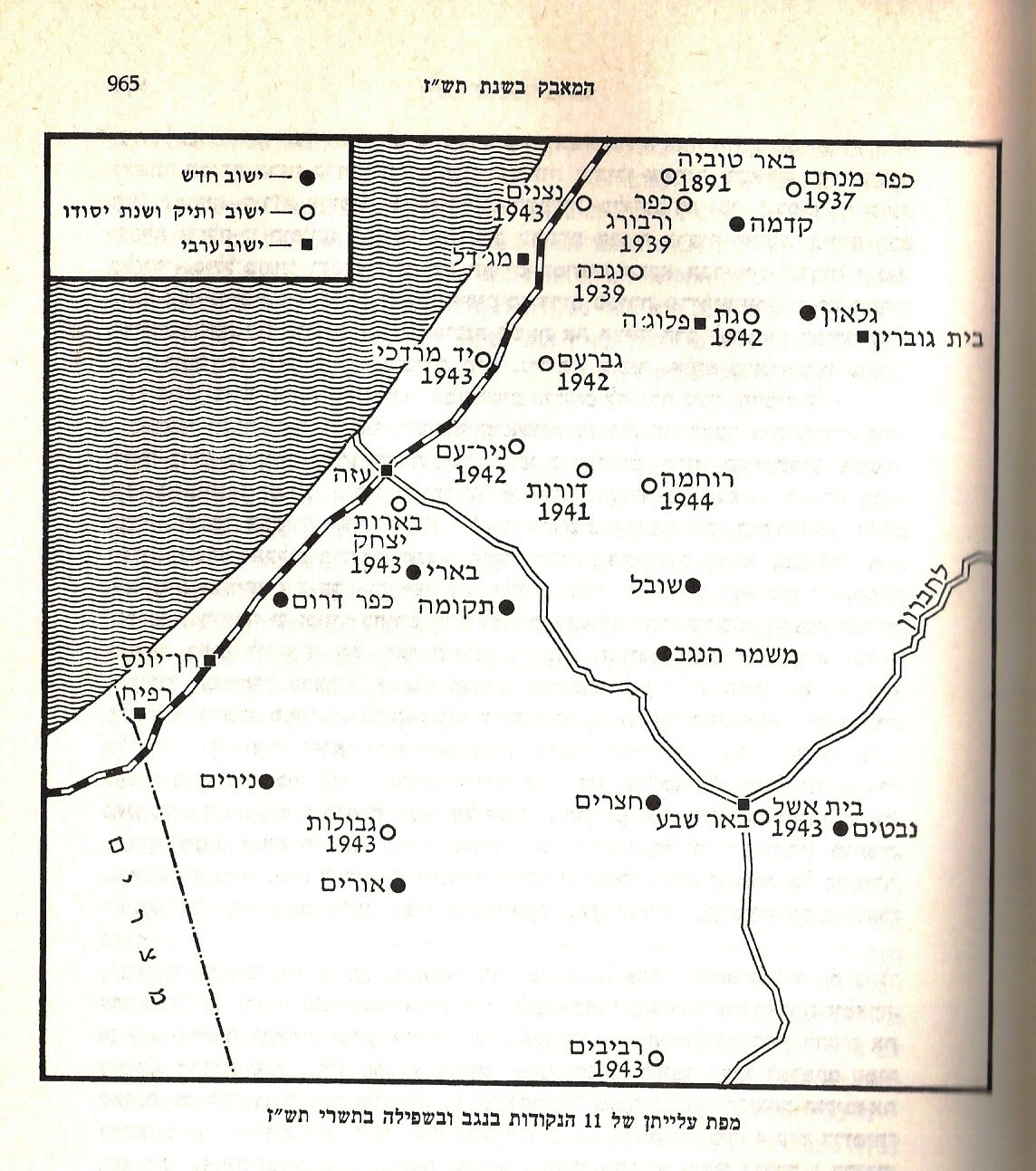On February 27, 1949, the commander of the Palmach’s 2nd Battalion addressed the Negev Brigade’s Brigadier-General Nahum Sarig:
“As commander of the 2nd Palmach Battalion, who was responsible for the defense of Kfar Darom, I hereby recommend that the defenders be given the highest medal of excellence, for heroically defending Kfar Darom … There is no possibility or right to name individuals in this war of heroism. The defense and heroism system is intertwined from the regional commander of the community to position commanders and conscripts alike, men and women, fallen in battle, wounded and healthy together until the evacuation.” Signed: Major Moshe Netzer. This recommendation was not made at the time due to various delays, however, in the 70s they gathered to show gratitude to the residents and fighters who gave their lives for its reestablishment in the special battle for Kfar Darom, and in the chain of heroism that has continued since the communities of Gush Katif until today.
What is the special story of Kfar Darom?
1. 11 points in the Negev: On Yom Kippur Eve 1946, 11 points in the Negev were established in a special operation, determining that the Negev would be included in the territory of the State of Israel. One of them was on the outskirts of Deir al-Blah, in an area that had been purchased at full price about 20 years earlier by Tuvia Miller. The nucleus “Netivot” composed of graduates from the religious youth village in Kfar Hasidim, 27 boys and 9 girls, aged 17-19, took upon themselves the challenge of establishing a religious kibbutz in the area. One of the members of the nucleus expressed his feelings in a letter: “Our ambition is to settle this land and make the wilderness of the land flourish which since the exile of our ancestors has been abandoned and turned into a wilderness. At the same time, we wish to build our lives in the spirit of the Torah and the prophets, the same spirit which accompanied and strengthened our people through years of wandering, suffering and torment.” The young kibbutz received the ancient Talmudic name of the place: Kfar Darom.
2. Kibbutz Kfar Darom: The limited settlement area, the meager budget, and the difficulty in supplying water made it very difficult for the young kibbutz to develop, but the young members made supreme efforts to develop and strengthen the settlement and overcame all the difficult tests that stood in their way.
3. The War of Independence:
a. From November 29, the security situation worsened, and attacks began on the transportation routes. The Kfar Darom residents fortified the kibbutz as much as they could and managed to repel all the attacks by the Arab gangs on the kibbutz.
b. The Egyptian army was preparing to invade via the coastal road toward Tel Aviv. Kfar Darom was the first community in its way, and it was attacked about four days before the Declaration of Israel’s Independence. The Egyptians thought that it would only take a few hours to conquer it.
For about five consecutive days the tiny spot was attacked: after heavy softening by dense shelling, the onslaughts of armored vehicles began together with field artillery tanks and thousands of infantry soldiers. Despite the many direct attacks on the community and the many wounded already on the first day, the Kfar Darom residents continued fighting and stopped the Egyptian attack. The Kfar Darom fighters conducted an exemplary heroic battle, delaying the Egyptian army and preventing it from entering the heart of the young state of Israel. They did so with very meager weapons, very little food and water, and despite suffering casualties. After the Egyptians failed in the conquest of Kfar Darom, they besieged the community and continued north. IDF attempts to transfer reinforcements and supplies to the besieged spot by land and air were unsuccessful but nevertheless, a handful of defenders stood their ground against the entire Egyptian army in an incredible heroic battle for about three months.
c. The command to evacuate on July 9, 1948: Despite the difficult situation in the community, the fighters’ spirits were strong, and they were determined to hold on. Therefore, they were surprised when they received the order to evacuate Kfar Darom in the middle of the night. This is how the commander of Kfar Darom described how he felt when he left Kfar Darom: “I locked the gate last, and my heart grieves very much. We left nine graves in this place. One was killed on the way and declared missing. About sixty were injured. We leave in the hope that a day will come, and this will be a place for a glorious Hebrew farm, and boys will talk about their fathers passing the test and grandchildren will draw courage and strength for their creation in peacetime. ” (Kfar Darom Commander, Avraham Diment.)








